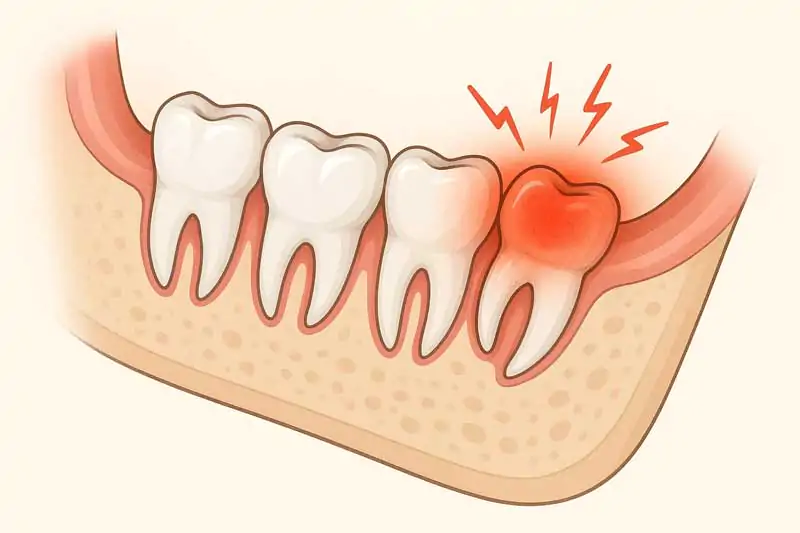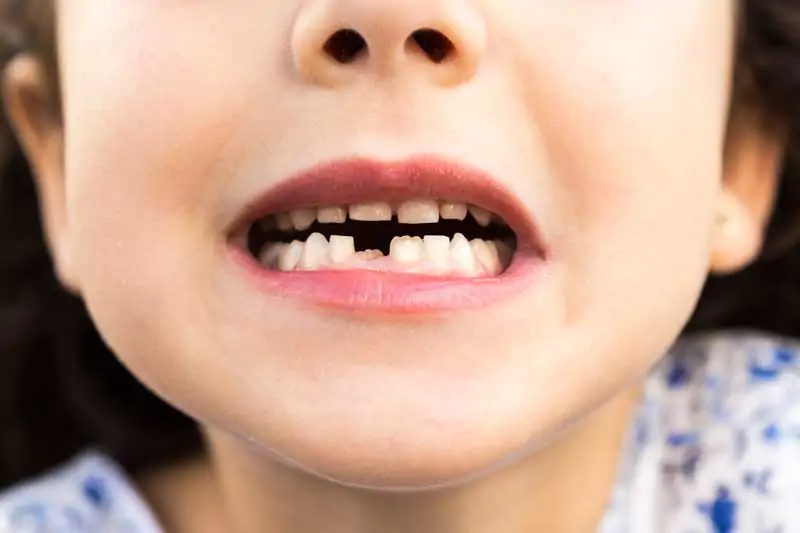Experiencing discomfort from wisdom teeth can be truly challenging. These final molars often emerge in early adulthood. Their eruption can cause significant pain and various problems. Understanding these issues is vital for your oral health. You are not alone in facing such dental concerns.
Many individuals encounter complications with these teeth. They often lack sufficient space in the jaw. This can lead to impaction, a common issue. Such conditions demand prompt and careful attention.
Ignoring wisdom tooth discomfort is not advisable. Untreated problems can worsen over time. This might lead to more severe health consequences. Seeking professional advice early is always the best path.
This comprehensive guide explores wisdom tooth pain. We will cover its root causes and effective treatments. Crucially, we also discuss preventive measures. Our aim is to provide clear, actionable information.
Good oral hygiene practices are a cornerstone of prevention. Regular dental visits are equally important. They help monitor tooth development closely. Addressing issues proactively saves much discomfort.
At Bali Sudirman Medical Centre, comprehensive dental solutions are provided. This esteemed aesthetic clinic ensures patient comfort and care. From dental consultations to specialized treatments, Bali Sudirman Medical Centre offers expert services for your needs, including a range of aesthetic treatments. For example, alongside dental care, you might consider an Underarm Whitening Treatment Bali for other personal care needs.
What Are Wisdom Teeth?
Wisdom teeth are your third and final set of molars. They typically appear between ages 17 and 25. Often, there is simply not enough room for them. This lack of space causes many common dental problems. They are the last teeth to develop fully.
Common Causes of Wisdom Tooth Pain
Several factors can lead to painful wisdom teeth. Understanding these causes helps in seeking the right care. Early identification prevents more serious issues.
1. Impaction
Impaction is the most frequent cause of pain. It happens when a wisdom tooth cannot fully erupt. This can be due to a physical barrier, like other teeth. The tooth may grow at an awkward angle. Estimates suggest that 70% of people have at least one impacted wisdom tooth. Globally, the prevalence of impacted third molars ranges significantly, from 16% to 68.6%. In some populations, like Swedish young adults, up to 72% have at least one impacted lower wisdom tooth.
2. Overcrowding
Your jaw might not have enough space. This forces wisdom teeth into existing teeth. Overcrowding causes pressure and pain. It can also shift other teeth. This impacts your bite and overall alignment.
3. Infection (Pericoronitis)
Partially erupted wisdom teeth are prone to infection. A flap of gum tissue can cover the tooth. This creates a trap for food and bacteria. The resulting inflammation is called pericoronitis. Symptoms include swelling, redness, and severe pain. Bad breath and difficulty opening your mouth may also occur.
4. Cysts and Tumors
Rarely, a cyst can form around an impacted tooth. This fluid-filled sac can damage bone and adjacent teeth. Although cysts are uncommon, affecting about 3% of impacted teeth, their potential for damage makes them a concern. Regular check-ups are key for detection.
5. Tooth Decay
Wisdom teeth are hard to clean properly. Their position at the back of the mouth makes brushing difficult. This increases the risk of cavities. Decay can spread, causing significant pain. It can also affect neighboring molars.

Recognizing the Symptoms
Being aware of symptoms helps you act quickly. Prompt treatment can prevent complications. Watch for these common signs of trouble.
- Persistent pain in the back of your jaw or mouth.
- Swelling and tenderness of the gums.
- Difficulty opening your mouth fully.
- Pain when chewing or biting.
- Unpleasant taste or bad breath.
- Headaches or jaw stiffness.
Effective Treatment Options
Managing wisdom tooth pain involves various approaches. The best method depends on your specific situation. A dental professional will guide your choice.
1. Home Remedies for Temporary Relief
While waiting for dental care, these steps can ease discomfort:
- Ice Packs: Apply a cold compress to your cheek. This reduces swelling and numbs the area. Use for 15 minutes on, 15 minutes off.
- Saltwater Rinses: Rinse your mouth with warm saltwater. Saltwater has disinfectant properties. It helps reduce bacteria and inflammation. Mix a few tablespoons of salt into warm water.
- Over-the-Counter Pain Relievers: Ibuprofen or acetaminophen can lessen pain. These medications help reduce inflammation effectively. Always follow dosage instructions carefully.
- Clove Oil: Some find clove oil provides numbing relief. Apply a small amount to the affected area.
2. Professional Dental Interventions
Self-care offers temporary relief, but professional help is essential. Dentists diagnose the problem accurately. They recommend the most suitable treatment.
- Antibiotics: If an infection is present, antibiotics are prescribed. These medicines clear bacterial growth. They reduce swelling and pain before further treatment.
- Extraction: Wisdom tooth extraction is a common procedure. It removes problematic teeth permanently. It’s performed when impaction or infection causes ongoing issues. Annually, around 10 million wisdom teeth are removed in the U.S.
- Minor Surgical Procedures: Sometimes, minor gum surgery is needed. This removes gum tissue covering a partially erupted tooth. This prevents further infection and pain.
Prevention is Key
While not all wisdom tooth issues are preventable, you can minimize risks. Good oral habits play a significant role. Regular dental check-ups are also crucial.
- Maintain Excellent Oral Hygiene: Brush twice daily and floss regularly. Pay extra attention to the back of your mouth. Use an antimicrobial mouthwash to reduce bacteria.
- Regular Dental Check-ups: Visit your dentist routinely. They can monitor wisdom tooth development. Early detection allows for proactive planning. Prophylactic extraction is often recommended in younger ages (mid to late teens). This minimizes future complications and recovery time.
- Healthy Diet: Reduce sugar intake to prevent cavities. Drink plenty of water to flush away food particles.
When to See a Dentist
Do not hesitate to contact a dentist if you experience pain. Swelling, redness, or difficulty opening your mouth are warning signs. Early consultation prevents worse conditions. Damage to surrounding teeth can be irreversible.
Frequently Asked Questions (FAQ)
Q: How long does wisdom tooth pain last?
A: Pain varies greatly among individuals. It depends on the cause and severity. Simple eruption discomfort might fade quickly. Pain from impaction or infection can be constant. Post-extraction pain typically subsides within a few days. Full recovery from surgery might take 4-6 weeks.
Q: Can wisdom tooth pain go away on its own?
A: Sometimes, mild pain resolves as the tooth emerges. However, persistent pain often indicates a problem. Impaction or infection usually requires professional treatment. It is best to consult a dentist for proper diagnosis
Q: Is wisdom tooth extraction painful?
A: The extraction procedure itself is not painful. Local anesthesia or sedation ensures your comfort. Post-surgery, you will experience discomfort. Pain management strategies help minimize this. Your dentist will provide specific aftercare instructions.
Q: What foods should I avoid after extraction?
A: Stick to soft foods for several days post-surgery. Avoid hard, crunchy, or spicy foods. Do not use straws, as suction can dislodge blood clots. This condition, known as dry socket, is painful.
Q: How common are impacted wisdom teeth?
A: Impacted wisdom teeth are very common. A global review found that 36.9% of subjects had at least one impacted third molar. Some studies show even higher rates in specific populations.
Take the Next Step for Your Oral Health
Don’t let wisdom tooth pain disrupt your life. Proactive care is essential for lasting oral health. Bali Sudirman Medical Centre offers expert dental services.
Ready to address your wisdom tooth concerns or explore comprehensive dental care? Bali Sudirman Medical Centre offers personalized treatment plans. Our aesthetic clinic is ready to assist you.
Visit our Dental Service Page to see our full list of treatments.
Schedule your consultation today! Make a reservation easily through our Reservation Page.









